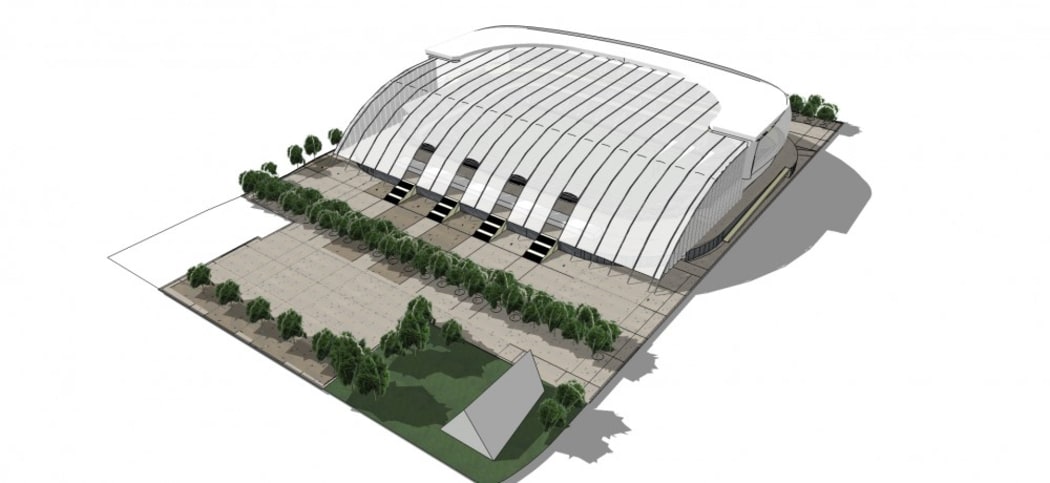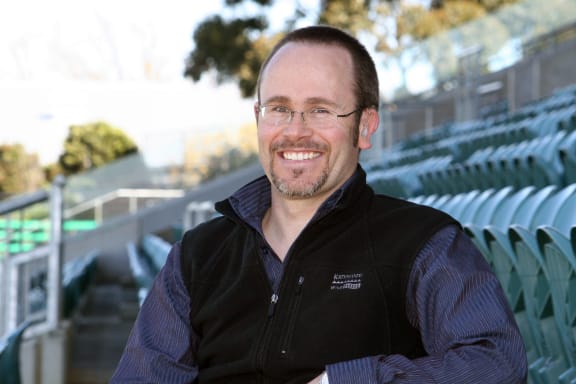The head of the Canterbury Crusaders is calling for a stadium to be built in the middle of Christchurch as a matter of urgency, but an economics lecturer says the business case does not stack up.

The study into the feasability of a stadium in Christchurch will look at incorporating hospitality and retail space into its design. Photo: Supplied / Otakaro Limited
The Christchurch City Council has earmarked $252 million towards a stadium but has pushed the start of construction out to 2022, due to its tight financial situation.
Crusaders chief executive Hamish Riach said the city could not wait until then.
"The city is missing out on having a venue that its people can enjoy as opposed to the narrow view that rugby's suffering because of it. Of course we're part of the story but in the end this is a key part of a city's infrastructure."
Anything smaller than a 30,000-seat covered stadium ran the risk of the city missing out on test matches, he said.
"The New Zealand Rugby Union and the British and Irish Lions have choices, so they're playing them in the big venues. If the city decides to have a smaller bespoke venue, we'll clearly make the most of it and we'll get on with it. But one of the consequences, absolutely, will be you won't get events that might have come here if it was bigger."
However, Massey University economics lecturer Sam Richardson said claims that new stadiums brought wider economic benefits through extra visitors did not stack up.
This was because most of those turning up at the gates were locals who would have spent that money in the city anyway.
"The construction sector for instance does experience a short-term increase in employment, but if you're going to spend a quarter of a billion dollars on increasing employment in the construction sector, well then is that a particularly strong argument?
"I think most people would be more comfortable with saying, well if we're going to spend that much money then we'd better see some money flowing, actually flowing in to the economy."

Sam Richardson Photo: RNZ / Conan Young
Instead of calling it a stadium, both the council and the government now referred to it as a multi-use events facility - denoting their wish to see it include hotels, offices and hospitality space.
They said this would help it turn a profit outside of the big events such as concerts and All Blacks tests.
Sam Richardson said the same claims were made for Dunedin's covered Forsyth Barr stadium and had so far failed to change the belief that stadiums just did not make money.
"In as much as you can say, yes we plan to bring in a certain amount of conference revenue or commercial space, that is in many respects diverted from elsewhere in the city, so it has a negative impact potentially on other parts of the city."
Gerry Brownlee's replacement as Minister for Greater Christchurch Regeneration, Nicky Wagner, maintained that if the city wanted to attract large events, then it would need a top class facility.
And she would like to see one that has a roof.
"I think it makes it a much more attractive thing to book. We know that if you've got something like a singer or concert coming, you have to pay a significant amount of insurance against rainy days if you haven't got a cover. So I think certainly if you're investing a large amount of money, you've got to look at it."
The mayor, Lianne Dalziel, declined to comment ahead of the completion of a pre-feasibility study into the stadium, which is due at the end of July.



